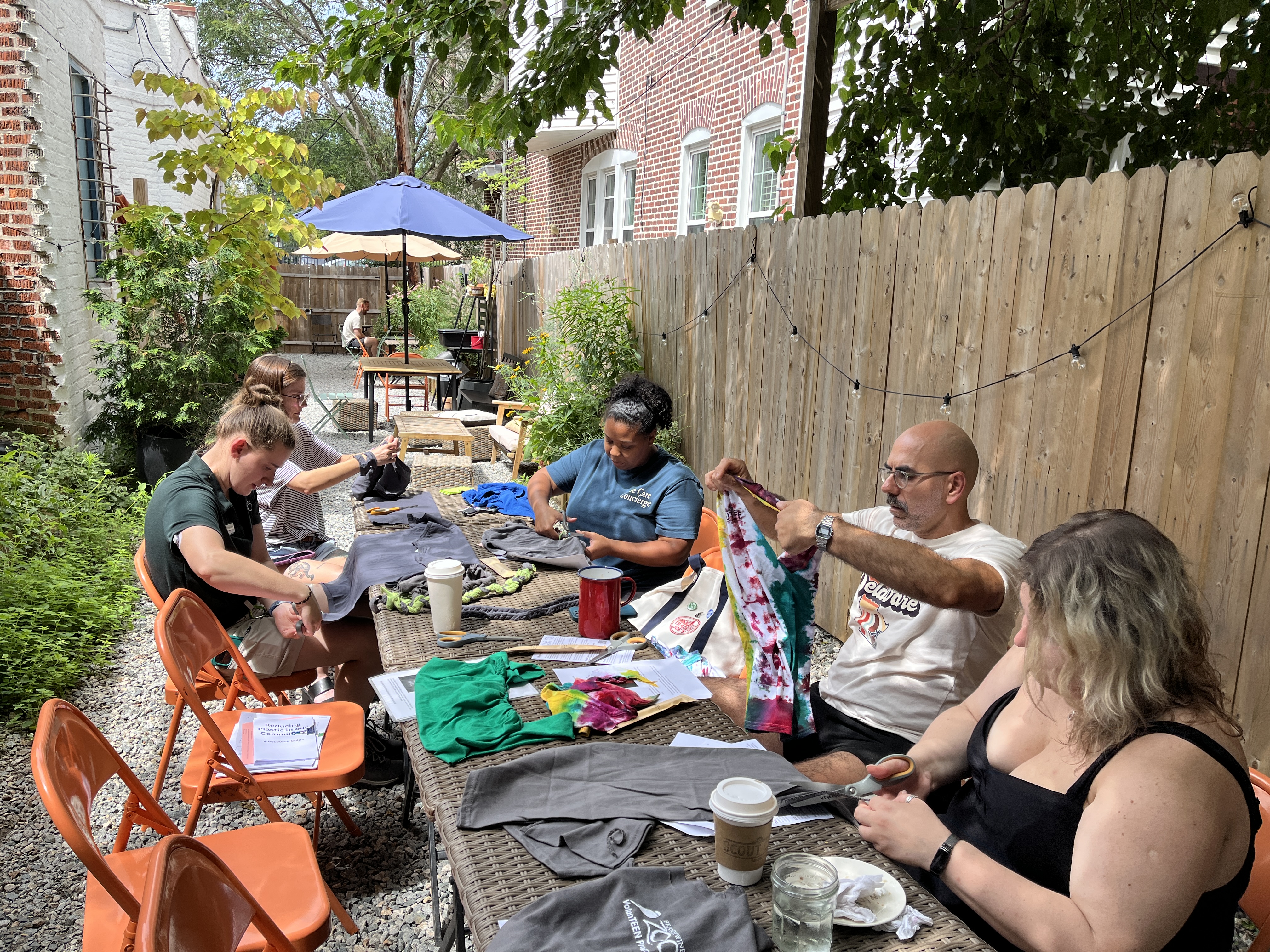- TEAM CAPTAIN
- Earth Advocate 📣
-
 Julie Mapes 7/31/2025 5:46 PM
Julie Mapes 7/31/2025 5:46 PM- TEAM CAPTAIN
Great idea! People love the idea of getting gifts and often will participate more when incentives are involved. Kudos for your efforts and idea!
Modal Description
Watch the short video below to learn the basics.
You'll be an Beyond Plastic Ecochallenge 2025 expert in no time!
"To expand my knowledge on the topic and apply even more behavior change to my life. This in turn spurs me to act in my community!"
Widespread change starts with local action and community innovation. I will spend 60 minutes learning about programs or initiatives in my area that reduce plastic use, such as third-party sanitization services, repair cafes, food gleaning, lending libraries, bulk or thrift stores, bans on single-use items, or zero-waste businesses.
Plastic pollution is visible in many communities. I will take part in or organize a cleanup event to remove litter, raise awareness, and spark conversations about how plastic ends up in our environment.
Clear, accessible information makes it easier for others to take action. I will create or share a simple guide with tips, resources, or local options to help people in my community, organization, or group reduce plastic use.
Transforming a space together can build momentum and spark conversation. I will work with someone else to remove or replace plastics in one room of our home or work place, such as the kitchen, lunch room, or bathroom.
Learning or sharing repair skills can keep useful items in use and out of the landfill. I will teach or learn a skill to extend the life of a product — like sewing, electronic repair, or furniture restoration — and share what I did with my community, workplace, or group to encourage others to do the same.
Advocacy campaigns can drive real change by amplifying public support. I will find and support a campaign — through a donation, signature, or share — that’s working to reduce plastic pollution or address the climate impacts of plastic.
Food businesses are major sources of single-use plastic. I will talk to a local café, food truck, or restaurant about allowing reusable containers, more sustainable materials, or cutting down on unnecessary plastic packaging.
Some nonprofits are leading the charge to change policies and corporate practices. I will donate to an organization working to reduce plastic at the source and promote systemic solutions for a healthier planet.
Our grocery habits are one of the biggest sources of single-use plastic, from packaging on produce to plastic bags and containers. I will spend 30 minutes researching low-plastic shopping strategies and make a list of things to look for or do differently the next time I go to the store.
People are more likely to take action when someone they trust makes a recommendation. I will share a documentary, podcast, or article that helped me understand the impact of plastic to spark curiosity, conversation, and action in others.
Where we put our money matters. I will research and invest in companies, funds, or assets that avoid investing in fossil fuels and plastic production, aligning my finances with my values.
Understanding my plastic footprint is a powerful first step toward making change. I will complete a short online plastic calculator, like the one from rePurpose Global, to estimate my annual plastic use and explore ways to reduce it.
Giving can be an act of change and inspiration. I will give a thoughtful, plastic-free or plastic-reducing gift — like a reusable bag, bottle, or bar soap — to someone in my life and share why I chose it.
Access is key to making sustainable choices easier. I will suggest a refill station (like for water, soap, or dry goods) or a returnable container system in a space I use regularly — such as a school, office, store, or gym — to help make plastic-free options more visible and convenient for everyone.
Policy is one of the most powerful tools for reducing plastic waste at scale. I will spend 60 minutes learning about current or proposed plastic-related policies, such as bans on single-use plastics or extended producer responsibility laws, to better understand how systems can change.
Many of us recycle with good intentions, but most plastic doesn’t get recycled. I will spend 60 minutes learning why plastic recycling falls short and what really happens to plastic waste.
Plastics can leach harmful chemicals into food, water, and the air we breathe. I will spend 60 minutes learning about the health impacts of plastic exposure and explore safer swaps — like choosing glass or stainless steel over plastic for food storage and drinking water.
Where we spend our money shapes the market. I will support a business that offers plastic-free, low-waste, or refillable products or services.
I will take a short survey about my experience to help the Ecochallenge team improve future events, earn a chance to win a prize, and earn 15 points!
Buying recycled or secondhand products helps close the loop and reduces demand for new plastic. I will look for and purchase a product made from recycled materials or choose a secondhand option the next time I shop to keep valuable resources in use longer.
Visual cues can inspire action in shared spaces. I will place a friendly sign or reminder in a common area — like a kitchen, bathroom, or office — to encourage less plastic use and spark conversation. I’ll include a clear, specific call to action so people know exactly how to take the next step.
